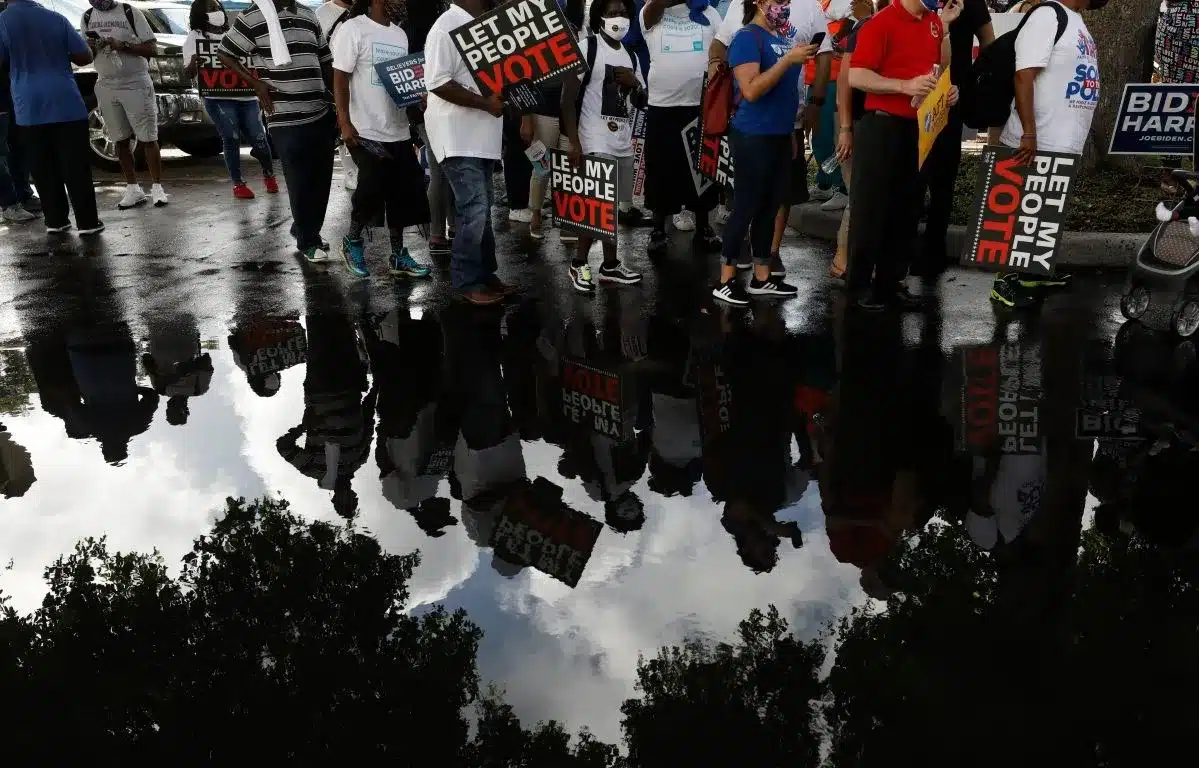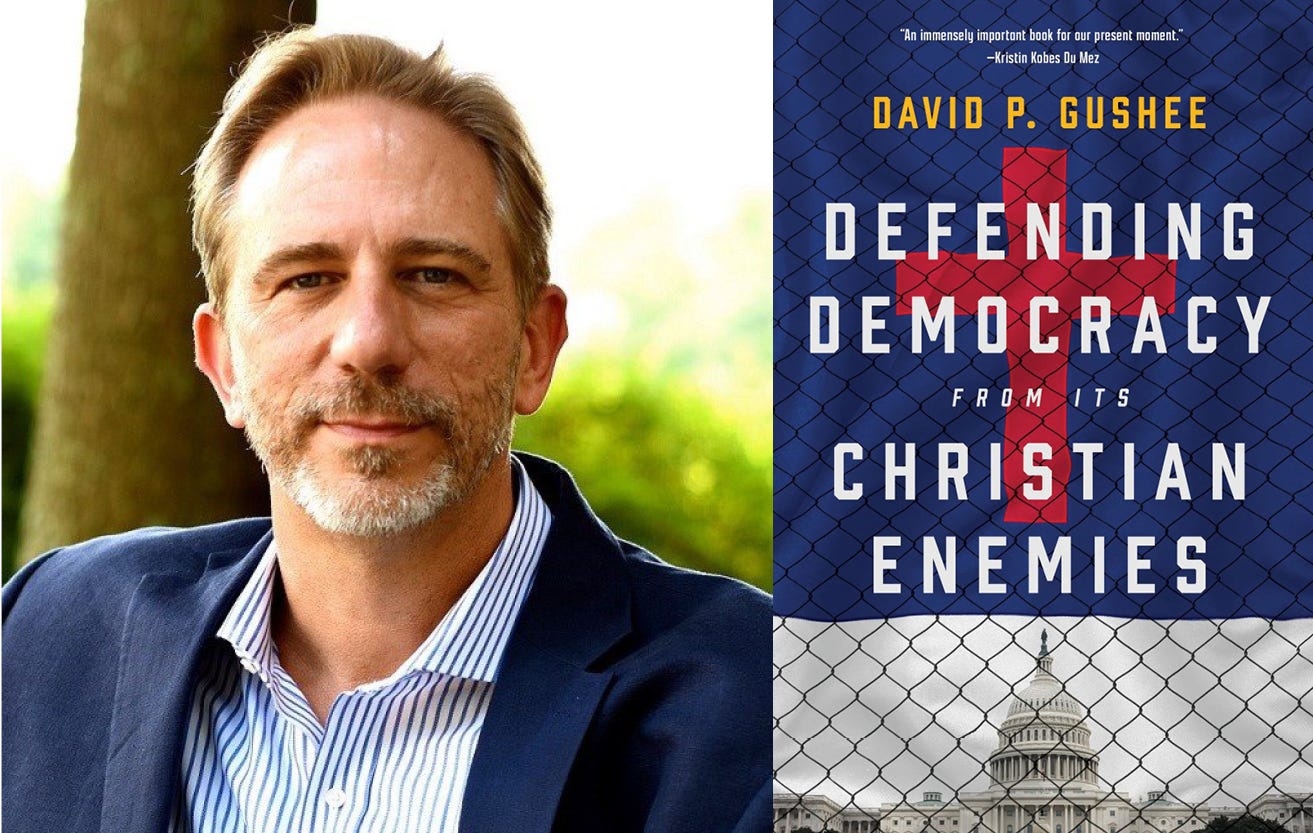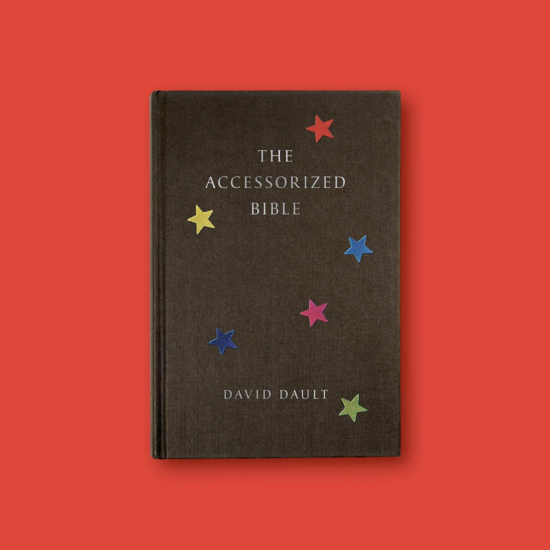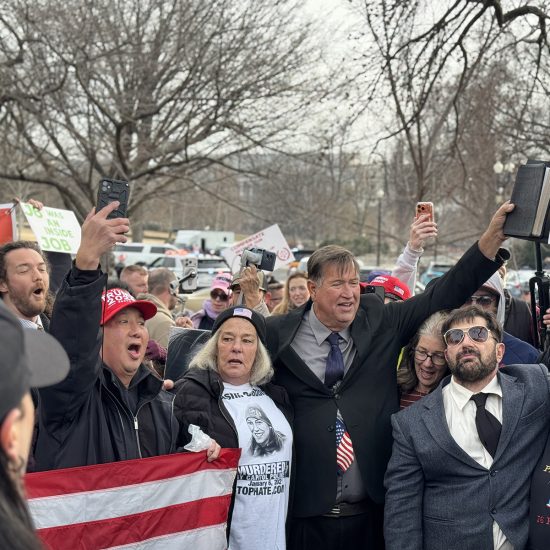
The prominence of the Christian symbols revealed the faith of the gathered masses. Those rioters and insurrectionists who stormed the U.S. Capitol on Jan. 6, 2021, in Jesus’s name saw their protest as a righteous cause despite its antidemocratic nature. Authoritarian politics had merged with reactionary religion in a combustible way that threatened the foundations of American democracy.
What transpired that day in the United States was not an isolated event. While the dynamics are different within each country, there are Christians conspicuously rallying around autocratic leaders in Russia, Brazil, Hungary, Poland, and other places. Those claiming to follow Jesus are at the forefront of efforts to erode democracy around the world.
That depressing reality is the focus of David Gushee’s latest book, Defending Democracy from Its Christian Enemies. The noted scholar (and Word&Way board member) brings his incisive ethical lens to defending democratic commitments and articulating the need for Christians to recommit themselves to its practices.

The problem is more vexing than one might imagine. After all, liberal democracy makes no claims about what is ultimately good. Instead, it protects the freedom of individuals and collectives to pursue their own interests and live in accordance with their particular values, provided they do not try to impede others from doing the same. Political theorists have long noted this system can be an odd fit for religious adherents whose faith convictions perceive such freedom as an affront to the will of God — a will that they are confident they grasp and equally certain their opponents do not.
In this season of antidemocratic movements spurred on by traditionalist Christians, the value of democracy must be defended rather than presumed. Gushee roots his support of democracy in two particular traditions: Baptists and Black Christians. The former saw state authoritarianism as a threat to God-given conscience, thus it developed a robust understanding of religious liberty. The latter saw how the evil of state power could be used to deny the God-given equality inherent among human beings. Democracy provides the political space for these principles to be expressed and protected.
To encourage fidelity to these affirmations, Gushee draws on a concept that holds both religious and political meanings: “It is time to press for democratic covenant renewal in lands where democracy has for years felt like a tired inheritance rather than a vital contemporary commitment. Like any other covenant in human life, the covenant of democracy cannot be taken for granted — and it takes more than law codes and agreed procedures to sustain it.”

People carrying signs supporting voting rights are reflected in a puddle as they arrive at an early voting center at Model City Branch Library, as part of a “Souls to the polls” march, in Miami, Florida, on Nov. 1, 2020. (Rebecca Blackwell/Associated Press)
Rekindling our passion for what democracy makes possible involves refocusing on the characteristics of democratic citizenship. In calling for political leaders “to embody and name the kinds of virtues required to meet democratic covenant obligations, such as self-discipline, patience, unselfishness, and humility,” Gushee’s guidance echoes the prescriptions of Christopher Beem’s The Seven Democratic Virtues.
Yet, Gushee goes one step further. His emphasis is not just on the demands placed on citizens in a democratic society but also how Christians can embrace a political system long taken for granted and currently under siege. He closes the book with a variety of theological arguments in favor of democracy including:
- That God is the true sovereign over all creation.
- That the lordship of Jesus over the lives of Christians extends to the political sphere.
- That all humans bear the image of God and that fundamental equality must be respected.
- That democracy provides a way for us to learn and grow in both wisdom and discipleship.
- And that “we can reject [authoritarianism] because we know that people are sinful and too much power is too strong a temptation.”
It is lamentable that such voices are necessary in these perilous times. But when our assumptions are no longer obvious, we need the wisdom of our tradition and its best contemporary thinkers to help us navigate turbulent ethical and political waters. Gushee remains one of our wisest guides.
That’s why we recently hosted him on Dangerous Dogma where he talked about his new book and the role of Christians in democratic life in much more detail. Please give that episode a listen and subscribe to our award-winning podcast for all the great conversations that happen there.
We are also thrilled to share that Gushee will send a signed copy of Defending Democracy from Its Christian Enemies to a lucky paid subscriber of A Public Witness. Help support our journalism ministry by upgrading today and you might find an autographed book in your mailbox in the near future.
Let’s read and learn, speak out and act, in fidelity to our call as Christians and in defense of the democratic tradition we treasure.
As a public witness,
Beau Underwood






